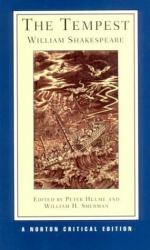|
This section contains 6,442 words (approx. 22 pages at 300 words per page) |

|
Arthur Kirsch, University of Virginia
It has long been recognized that Shakespeare borrowed from Montaigne. Gonzalo's Utopian vision in The Ternpest (II.i.142-76)1 is indebted to a passage in Florio's translation of Montaigne's essay, "Of the Cannibals,"2 and Prospero's speech affirming that "The rarer action is / In virtue than in vengeance" (V.i.20-32) is derived from the opening of Florio's translation of the essay, "Of Cruelty" (2:108). The king's speech in All's Well That Ends Well on the distinction between virtue and nobility (II.iii.117-44) appears to be a similarly direct, if less well-known, borrowing from "Upon Some Verses of Virgil" (3:72-3), an essay whose treatment of the polarization of sensuality and affection also has bearing upon Othello.3 Leo Salingar has perspicuously shown that a number of the major themes of King Lear, as well as much of its distinctive vocabulary, are drawn from "An Apology...
|
This section contains 6,442 words (approx. 22 pages at 300 words per page) |

|


